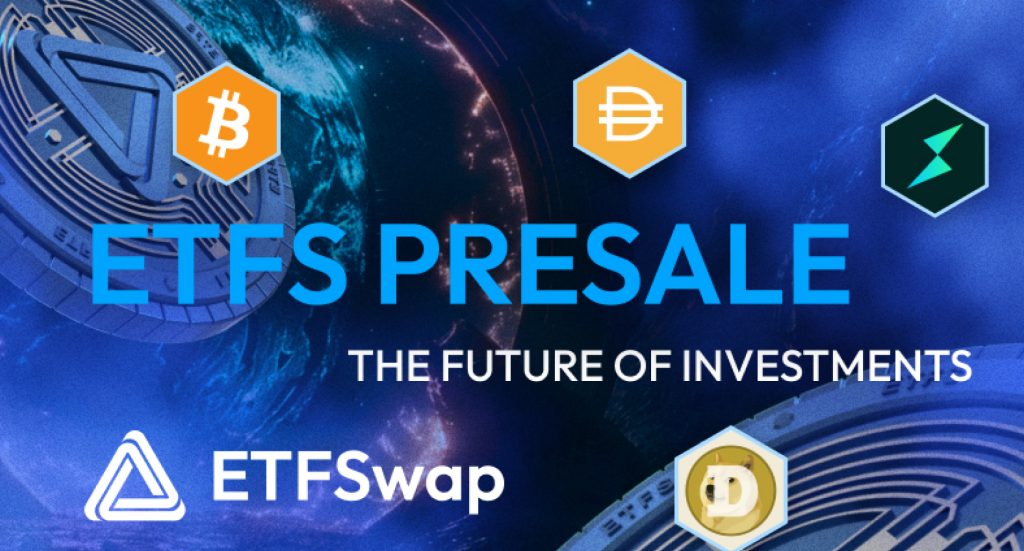Ethereum Network Fees Plummet to Record Lows Since 2016
Ethereum co-founder Vitalik Buterin recently voiced his concerns over the current state of crypto regulation, and highlighted how existing frameworks disadvantage well-intentioned developers and enable bad actors. Responding to a user on Warpcast, Buterin emphasized the need for a balanced regulatory approach that promotes transparency and accountability. His proposed solutions include limiting leverage, requiring audits and transparency, and implementing knowledge tests for users. As the industry waits for the launch of U.S.-based spot Ether exchange-traded funds (ETFs), delayed by the SEC's extended review process, Buterin's insights add to the ongoing dialogue about the future of cryptocurrency regulation and its impact on innovation and security.
Ethereum Network Records Lowest Fees Since 2016: A New Era of Efficiency and Affordability
On June 30, the Ethereum network achieved a remarkable milestone by recording its lowest transaction fees since 2016. According to data from Etherscan and Dune Analytics, the average gas fee currently stands at just 3 Gwei, equivalent to approximately $0.14. This significant reduction in fees marks a new era of affordability and efficiency for Ethereum, contrasting sharply with the high fees experienced during previous periods of heavy network usage.
Gas fees on the Ethereum network are the costs associated with executing various operations, such as transactions and smart contract interactions. These fees play a crucial role in maintaining the network's security by incentivizing validators, who process and verify transactions. Additionally, gas fees serve as a deterrent against spam attacks, ensuring that the network remains functional and secure.
During the 2021 bull run, Ethereum's gas fees skyrocketed due to an explosion in demand, particularly from the non-fungible token (NFT) sector. The exorbitant fees led some critics to question the sustainability of the network, prompting users to explore more affordable alternatives like Solana. However, the current scenario is markedly different, with Ethereum's gas fees hitting unprecedented lows despite robust transaction activity.
Several factors contribute to the significant drop in Ethereum gas fees. A key development is the enhanced efficiency of the Layer-1 market, driven by a combination of increased Layer-2 volume and the introduction of "blob transactions" through Ethereum Improvement Proposal (EIP) 4844. This proposal has significantly improved the scalability of the Ethereum network, enabling it to handle more transactions at lower costs.
"We will still see gas spikes above 15 Gwei in times of higher activity. It’s just that overall the gas market has been more efficient post-4844. So we’ll have more affordable days than expensive ones," commented Brian Smocovich, founder of Pistachio Fi, in a post on the X social media network.
The dramatic reduction in gas fees has broader implications for Ethereum's economic model. With lower fees, the network is no longer operating in a deflationary mode, as the amount of fees burned is minimal. This development challenges the narrative of Ethereum as "ultra sound money," which gained traction prior to the Dencun upgrade.
According to data from ultrasound.money, the Ethereum network has added 14,393 ETH over the past seven days, translating into an annual supply growth of 0.62%. The total supply of Ethereum currently stands at 120,185,061 ETH, indicating that the network is on track to reach a new peak in 2024.
The current state of Ethereum, with its remarkably low gas fees and increased transaction efficiency, signals a positive trajectory for the network. As Ethereum continues to evolve and implement additional scalability solutions, it is poised to maintain its position as a leading blockchain platform.
Ethereum's achievement of recording its lowest fees since 2016 marks a significant milestone in its journey towards greater efficiency and affordability. With continued advancements and a focus on scalability, Ethereum is well-positioned to meet the demands of its growing user base while maintaining its security and functionality.
Launch of U.S. Spot Ether ETFs Delayed by SEC: New Timeline Pushes Potential Launch to Mid-July or Later
The anticipated launch of United States-based spot Ether exchange-traded funds (ETFs) has been delayed by the U.S. Securities and Exchange Commission (SEC), thwarting expectations of an early July debut. Bloomberg ETF analysts Eric Balchunas and James Seyffart reported that the SEC has extended the review period for the S-1 forms submitted by potential spot Ether ETF issuers, pushing the launch to mid-July or possibly later.
The SEC's decision to take additional time for commenting on the S-1 forms and requesting resubmissions by July 8 has introduced a new timeline for the launch. According to Balchunas, this delay means that the launch of spot Ethereum ETFs could be postponed until mid-to-late July. The process was further clarified by ETF Store president Nate Geraci, who noted that the recent round of S-1 revisions was relatively minor. Geraci predicted that the SEC might clear issuers for trading within 14 to 21 days, suggesting that the timeline, while uncertain, indicates a potential summer launch.
Earlier in June, Balchunas had forecasted an early July ETF launch window, basing his prediction on the absence of significant commentary from SEC staff regarding the ETF applicants’ S-1 filings. However, the additional comments and requests for resubmission have altered this timeline.
The approval of the S-1 forms represents the second part of a crucial two-step process required for the ETFs to go live. The first part involved the approval of the issuers’ 19b-4 forms, which occurred in May. On May 23, the SEC approved 19b-4 filings from eight ETF bidders, marking a significant milestone in the process.
Unlike the 19b-4 forms, the S-1 forms do not adhere to a specific deadline, leaving issuers dependent on the SEC’s schedule for review and approval. This flexibility in the review process has added to the uncertainty regarding the exact launch date of the spot Ether ETFs.
Despite the delays, the SEC has indicated that the approval process for spot Ether ETFs is progressing smoothly. SEC Chair Gary Gensler confirmed on June 26 that the process is moving forward, albeit with potential further delays. The SEC has approved a rule change permitting major issuers such as BlackRock, Fidelity, 21Shares, Grayscale, Franklin Templeton, VanEck, iShares, and Invesco to participate in the process. Additionally, issuers like VanEck have filed 8-A forms in preparation for listing on exchanges by July 8.
However, Gensler also cautioned that listing spot Ether ETFs on stock exchanges could take months, potentially pushing the launch to September. He emphasized that the timeline largely depends on the response times of the applicants, placing the onus on them to expedite the process.
As the SEC continues its review process, market participants and potential investors remain on edge, eagerly awaiting the final decision. The approval of spot Ether ETFs would mark a pivotal moment for the cryptocurrency industry, potentially ushering in a new wave of investment and legitimacy for digital assets.
The delay in the launch of U.S.-based spot Ether ETFs by the SEC has introduced uncertainty into the market, with the potential launch now pushed to mid-July or later. This extended review period and resubmission requirements demonstrate the meticulous nature of the SEC’s approval process. Despite the delays, the progress made so far and the participation of major issuers indicate a strong likelihood of eventual approval.
As the industry waits for the final decision, the potential launch of spot Ether ETFs continues to generate anticipation and optimism. The successful introduction of these ETFs could significantly impact the crypto market, driving increased investment and further integrating digital assets into the mainstream financial landscape.
Vitalik Buterin Criticizes Current Cryptocurrency Regulation and Proposes Solutions
In a related development, Buterin recently expressed his frustration with the current state of crypto regulation and proposed solutions to address the issues plaguing the industry. Responding to a user on Warpcast, a social media platform built on the Farcaster protocol, Buterin highlighted how existing regulatory efforts have cornered good-faith cryptocurrency developers, stifling innovation and creating a counterproductive environment.
Buterin articulated the paradox faced by cryptocurrency developers in the United States, where the regulatory landscape favors vague and speculative projects over transparent and well-defined ones. He stated, “The main challenge with crypto regulation (esp in the US) has always been this phenomenon where if you do something useless, or something where you’re asking people to give you money in exchange for vague references to potential returns at best, you are free and clear. But if you try to give your customers a clear story of where returns come from, and promises about what rights they have, then you’re screwed because you’re ‘a security.’ The incentive gradient that this ‘anarcho-tyranny’ creates ends up worse for the space than either plain anarchy or plain tyranny.”
In an environment of regulatory ambiguity, bad actors, scammers, and hypesters have thrived. Social media and other sharing platforms have become rife with baseless projects and deceptive schemes, tarnishing the reputation of the entire cryptocurrency industry. The lack of stringent oversight allows these bad actors to operate with impunity, undermining the trust and security that legitimate projects strive to build.
To combat the proliferation of “useless” cryptocurrency products and services, Buterin previously proposed three key recommendations:
1. Limiting Leverage: By capping the amount of leverage available to cryptocurrency projects, regulators can reduce the risk of speculative bubbles and ensure more stable growth.
2. Requiring Audits and Transparency: Mandating regular audits and transparency reports would hold projects accountable, providing investors with the information they need to make informed decisions.
3. Gating Usage with Knowledge Tests: Implementing knowledge tests to gauge user understanding of cryptocurrency could help ensure that participants are well-informed and mitigate the risk of fraud.
While the practical implementation of these recommendations, particularly knowledge tests, remains unclear, they represent a proactive approach to fostering a healthier and more secure cryptocurrency ecosystem.
Buterin then criticized the uneven and nebulous approach to cryptocurrency regulation in the U.S., which he believes disproportionately affects projects with clear long-term visions. He argues that the current regulatory framework protects companies and projects without sustainable plans, which ultimately harms the industry. “I would much rather see us move to the opposite situation, where issuing a token without giving a clear long-term story for why it will maintain or increase in economic value is the riskier thing,” Buterin emphasized.
The Ethereum co-founder acknowledged that implementing effective regulations to serve the crypto industry is only part of the battle. Achieving meaningful change requires cooperation and good-faith engagement from both regulators and industry participants. He called for a collaborative approach to regulation that balances the need for security and transparency with the freedom to innovate.
Buterin’s critique of the current state of cryptocurrency regulation brings attention to the challenges faced by developers and investors alike. His proposed solutions aim to address the root causes of the problems, promoting a more transparent and accountable industry.
While the crypto market continues to evolve, it is crucial for regulators and industry leaders to work together to create a framework that supports innovation while protecting users from fraud and abuse. Buterin’s insights and recommendations offer a valuable perspective on how to navigate the complex landscape of cryptocurrency regulation and build a more robust and trustworthy ecosystem.




